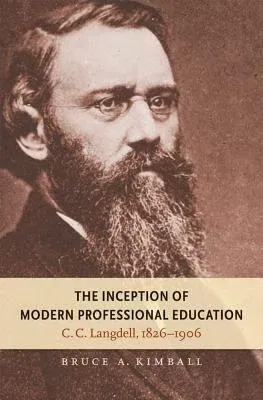Christopher C. Langdell (1826-1906) is one of the most influential
figures in the history of American professional education. As dean of
Harvard Law School from 1870 to 1895, he conceived, designed, and built
the educational model that leading professional schools in virtually all
fields subsequently emulated. In this first full-length biography of the
educator and jurist, Bruce Kimball explores Langdell's controversial
role in modern professional education and in jurisprudence.
Langdell founded his model on the idea of academic meritocracy.
According to this principle, scholastic achievement should determine
one's merit in professional life. Despite fierce opposition from
students, faculty, alumni, and legal professionals, he designed and
instituted a formal system of innovative policies based on meritocracy.
This system's components included the admission requirement of a
bachelor's degree, the sequenced curriculum and its extension to three
years, the hurdle of annual examinations for continuation and
graduation, the independent career track for professional faculty, the
transformation of the professional library into a scholarly resource,
the inductive pedagogy of teaching from cases, the organization of
alumni to support the school, and a new, highly successful financial
strategy.
Langdell's model was subsequently adopted by leading law schools,
medical schools, business schools, and the schools of other professions.
By the time of his retirement as dean at Harvard, Langdell's reforms had
shaped the future model for professional education throughout the United
States.


